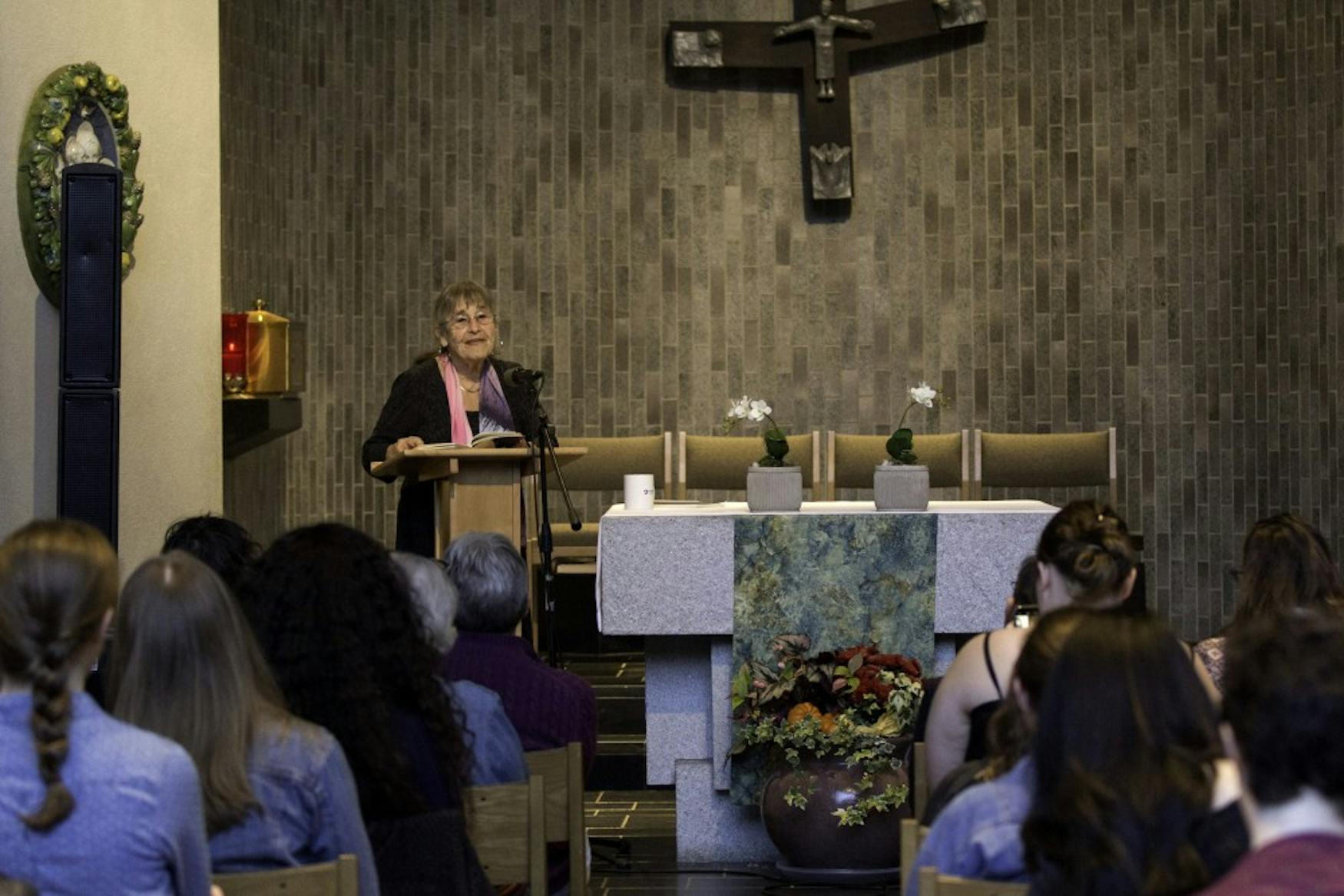Poetry for a Country in Crisis
Alicia Ostriker ’59 tackles immigration and the American dream through poetry
It was an unusually warm afternoon on Oct. 19. The sun beamed in through the windows of Bethlehem Chapel, casting everything from the carvings of the cross adorned on the white walls to the various people, ranging from teenagers to seniors, in a golden hue. This scene was broken by applause as Alicia Suskin Ostriker stepped up to the podium.
Ostriker is an American poet and literary critic who has won countless awards and accolades for her work. She has been a finalist for the National Book Award twice and was elected as a Chancellor of the Academy of American Poets in 2015. She was born in Brooklyn in 1937 and received her undergraduate degree from Brandeis in 1959. She has written a variety of works, including poetry collections and academic texts, the latter of which include analyses and criticisms of other poets’ works and the Bible.
Ostriker’s poetry is designed to be accessible. She uses everyday language that does not require an extensive vocabulary to understand. Drawing upon images both mundane and ethereal, many of her poems aim to illuminate what it means to be human. In the first poem she read, “August Morning, Upper Broadway,” a man selling avocados at the side of a city street, tired from the heat and reading the newspaper because he has nothing better to do, becomes a window through which a light so radiant and otherworldly shines that it “[stabs] tourists with malicious abundant joy.”
Despite the raw emotion that this image conveys, Ostriker claims that she wasn’t satisfied with the poem. However, she was inspired by the idea of cities, in particular how they are largely made up of — and even defined by — immigrants. These are recurring themes throughout a lot of her poems, but one poem in particular that conveys these subjects is “The Light.” In this poem, she notes the various cultures that inhabit the city to the point where they are taking over. “Porque no comprendes, you don’t own this city anymore. This city belongs and has always belonged to its shoals of exiles,” she read. She explained that the image of “shoals of exiles” is designed to introduce the idea of the city being a shore to which immigrants, desperate to improve their lives and those of their loved ones and children, are swimming. In this way, the city is like a savior.
Ostriker believes that cities are the home of the American dream. However, she noted that this is not purely a good thing, as the American dream itself is not inherently good. As such, cities are both good and bad. In her poem “Manahattan,” she claimed “you [the city] digest dudes who crave to be big shots, celebrities, hedge fund managers who like to show off and be bad, who get a kick/ from champagne.” While achieving fame and wealth is typically viewed as ideal and essential to the American dream, she puts this notion under an ominous light. In doing so, she reveals that while cities can bring fame and wealth to some, not everyone who goes to the city will receive those benefits. So while the city is a savior for some, it is also an empty promise to others.
In this way, the entirety of America is like a city. The merits and flaws of America as a whole are the main theme of her poem “Ghazal: America.” The poem opens with a list of what makes America ideal, especially for immigrants: “When the babies starved, when the village burned, when you were flogged/ log out, ship out, there was a dream, the green breast of America.” However, as the poem progresses, its focus shifts to the negative aspects of America, such as racism, colonialism and the extreme culture surrounding the acquisition of money. As she stated, “I adore superhighways, but money is the route of all evil in America.”
As Ostriker read her poems, day turned to night. The air cooled, and all the light came from within the chapel. While the scene was different from when she had begun the reading, it was still serene; the audience sat silent save for the occasional bouts of laughter when she made a joke. Perhaps this moment, as day transitioned to night and light mixed with darkness, was a reminder of the human experience that Ostriker conveys through her poetry.



Please note All comments are eligible for publication in The Justice.